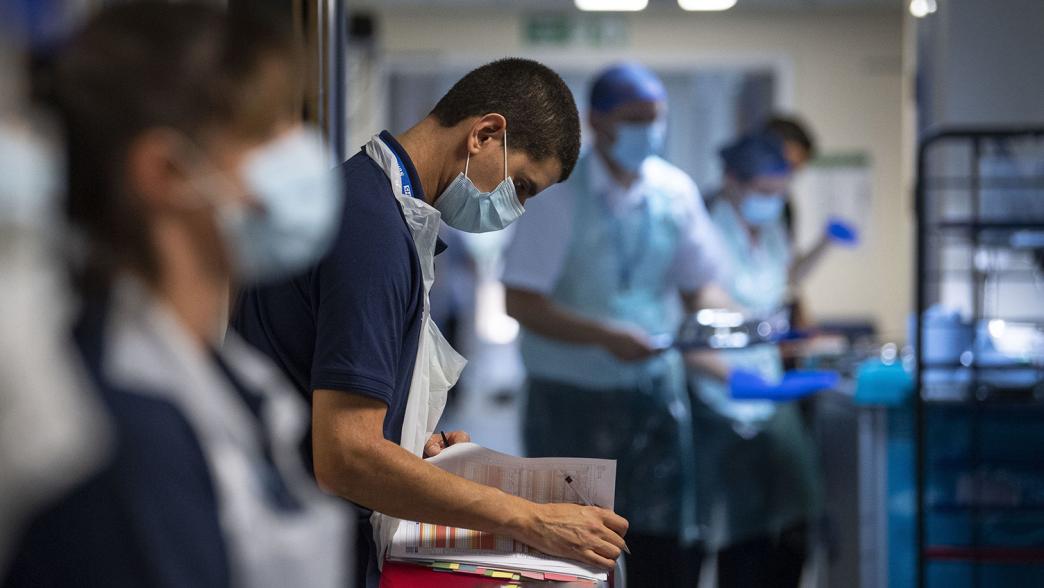Steve Barclay should be wary of trying to directly manage the NHS
Ministers are once again going to try to manage the NHS, but Nicholas Timmins warns that this may not be a good development

Back in 2012, the National Health Service was given something that many had longed wished for – some politicians included. A statutorily independent executive in the shape of what is now NHS England charged with managing the service, with politicians confining themselves to setting policy and objectives and holding the executive to account.
This would, in the words of the then health secretary Andrew Lansley, “liberate” the NHS to do its job, ending the “political micro-management” of the NHS by ministers. Not any more, it would appear. For the news is that Steve Barclay, the current health and social care secretary, is spending some of his money to clear an entire floor in his department to create an open plan office to house not just himself and his senior officials but also Amanda Pritchard, the chief executive of NHS England, and her senior officials.
This is not yet the demise of NHS England. It retains, at least for now, its Waterloo headquarters. But it is clear that Pritchard and her senior officers will be spending yet more time in the department as the secretary of state appears to want personally to performance manage the health service out of its current travails. The nominal independence of NHS England is clearly evaporating.
Former health secretaries agree that the NHS should be managed at arms-length from politicians
Does this matter? Well, the NHS and social care are in deep trouble and Barclay is the secretary of state. He is ultimately accountable and is bound to want to feel at least a degree of control, and clear communication with NHSE over what is going on. But he should be warned.
First, almost every health secretary who has left office since the 1980s came to the view that it was better that the NHS should be managed at arms-length from politicians rather than directly managed by them – whatever they individually did while in office. And second, he should recall Rudolf Klein’s great stricture during the very early days of the 1997 Labour administration, that centralisation of control leads to “centralisation of blame”. In purely political terms, the more Barclay appears directly to be in charge, the more responsible he will be for what is going wrong.
Third, this feels like displacement activity. What the NHS needs right now is not a re-arrangement of the deckchairs between NHSE and the department – along no doubt with exhortations to over-stretched staff to try harder and to try this rather than that – but a series of policy decisions that are absolutely in the domain of ministers.
The focus should be on the long list of policy decisions that are needed
The NHS has a long list of problems that need solving. Addressing the crisis in social care that is preventing hospitals from discharging medically fit patients, which gums up hospitals and leads to ambulances queuing to discharge patients. Properly solving the pension problem that is encouraging earlier retirement among consultants and GPs and which is discouraging them from taking on extra shifts because they may be hit by large unexpected tax bills. Producing the long promised plan for the workforce that will not help immediately but should point to a better future. And resolving the relationship between the department, NHSE and the recently created Integrated Care Boards. Former Labour health secretary Patricia Hewitt has been appointed by both Barclay and the chancellor Jeremy Hunt to look at how they can be given greater autonomy to do their job, while – a bit of a tension here – balancing that with robust accountability for performance and spending. Hewitt’s interim findings are due shortly. They are unlikely to include a recommendation for more performance management by ministers.
And then, of course – and no-one should pretend this is easy – finding a way to resolve the current pay disputes with NHS staff.
The long history of the NHS is one of the pendulum swinging between centralisation and genuine attempts to devolve decision making and initiative. Right now, it seems to be swinging sharply back to centralisation, before another set of ministers concludes yet again that you cannot run the NHS from Whitehall.
- Topic
- Public services
- Keywords
- Health NHS Social care
- Department
- Department of Health and Social Care
- Public figures
- Steve Barclay
- Publisher
- Institute for Government